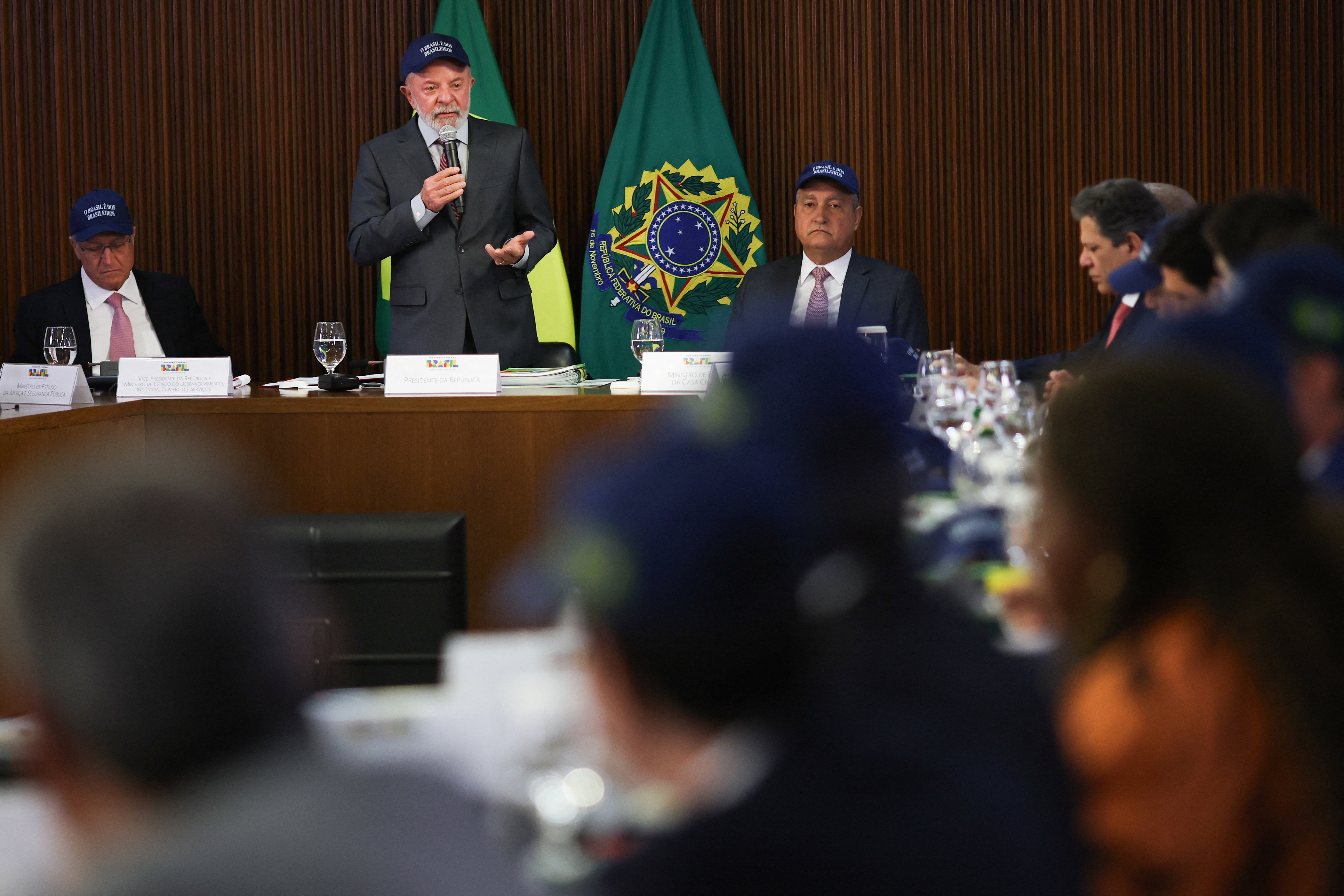Brazilian police and tax officials carried out a series of raids early on Thursday across the country targeting multibillion-dollar money laundering and fraud schemes linked to organised crime in the fuel sector, authorities said.
Multinational energy firms have struggled for years to root out organised crime from their distribution networks in Brazil, and the federaltax revenue service said this week’s crackdown related to schemes involving more than 10 billion reais ($1.84 billion) in fuel imports and 52 billion reais in domestic fuel sales.
It said 46 billion reais in illicit financial transactions linked to the schemes had moved through fintech companies from 2020 to 2024.
“In coordinated actions involving the federal police, federal revenue service and state public prosecutors’ offices, three simultaneous operations were launched in the financial and fuel sectors, involving 10 states,” Brazil’s President Luiz Inacio Lula da Silva said in a post on X.
Authorities served some 350 search warrants in states across the country and sought to block more than 1 billion reais in assets during the operation, known as Hidden Carbon, the revenue service said.
Closed-end funds investigated by authorities held assets including a port terminal, four ethanol plants plus stakes in two others, a fleet of 1,600 trucks, and more than 100 properties, said Andrea Chaves, the revenue service deputy secretary for oversight.
“Evidence identified by the tax authority indicates the funds were used to conceal and shield assets, and suggests fund managers were aware of and contributed to the scheme,” she said.
The criminal enterprises included the involvement of First Capital Command (PCC), a major organised crime gang, public prosecutors in Sao Paulo state said.
Organised crime’s infiltration of critical economic sectors from energy to finance in Brazil represents a dangerous escalation of risk, said Robert Muggah, cofounder of think tank Igarape Institute.
“By capturing strategic assets and exploiting regulatory blind spots, the PCC and its allies are not only draining public revenues; they are undermining trust in the financial system and governance,” Muggah said.
LINKED COMPANIES
Asset manager REAG Investimentos REAG3.SA was among the targets of the warrants, according to a court decision seen by Reuters.
REAG said in a securities filing it was “fully cooperating with the competent authorities, providing the information and documents requested” as part of the “ongoing investigative procedure.”
The company’s shares were down 13.3% on Thursday afternoon.
Chemical firm GPC Quimica, owned by Dexxos Participacoes DEXP3.SA, was also named in a court document seen by Reuters.
Dexxos “does not condone any illegal acts” and remains available to competent authorities to assist requests for information, it said in a statement.
Brazil’s Instituto Combustivel Legal (ICL), an industry group created to combat fuel fraud, expects volume of sales for major distributors to rise due to the operations.
“The space they have in the market is expected to grow,” Emerson Kapaz, ICL’s chief executive, told Reuters.
Shares of major distributors such as Ultrapar UGPA3.SA, Raizen RAIZ4.SA and Vibra VBBR3.SA jumped after news of the operation became public.
In a separate statement, the federal police said they had simultaneously launched the “Quasar” and “Tank” operations, also aimed at cracking down on schemes that allegedly moved more than 23 billion reais in the fuel sector.






Click here to change your cookie preferences